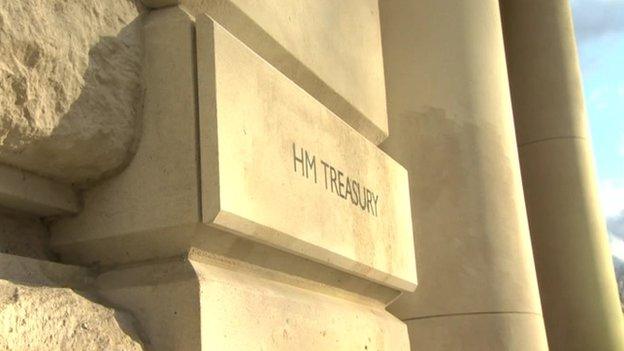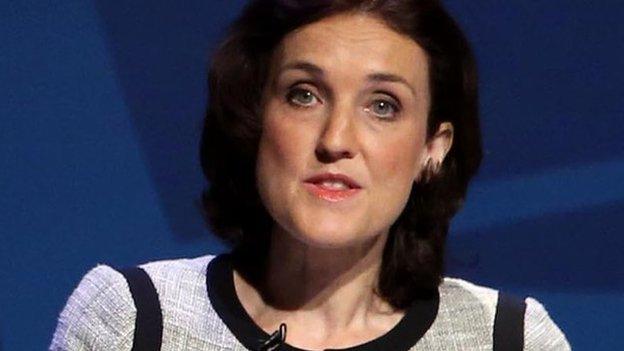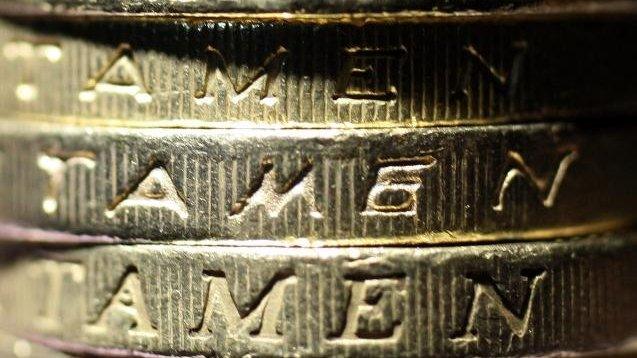Corporation tax: Devolution 'to cost NI £325m a year'
- Published

A cut in corporation tax would mean less revenue is collected for the Treasury, and under European rules Stormont would have to make up the shortfall
The devolution of corporation tax will mean Northern Ireland's block grant being cut by £325m a year, according to the latest Treasury estimate.
The figure was revealed by Treasury minister David Gauke to a Commons committee examining legislation that will devolve the tax power to Stormont.
Last week, he said the figure would be £300m but on Tuesday he said the higher number was the "best estimate".
A cut in corporation tax will mean less revenue is collected for the Treasury.
Under European rules, the Northern Ireland Executive will have to make up the shortfall.
Mr Gauke added that the actual figure is subject to change, depending on the relative performances of the Northern Ireland and UK economies.
Northern Ireland Secretary of State Theresa Villiers said the mechanism or formula for reducing Stormont's block grant is still being worked on.
She also said that the means of assessing whether Stormont's finances are on a "sustainable footing" are also still to be determined.
The recent Stormont House Agreement states that devolution of the tax power is "subject to the executive demonstrating that its finances are on a sustainable footing for the long term".
Shadow Treasury Minister Shabana Mahmood said she was surprised that the criteria is not in place because it means "the Northern Ireland Executive doesn't know what threshold it must meet".
Ms Villiers later suggested to Democrat Unionist Party MP Sammy Wilson that the absolute minimum threshold was Stormont passing proposed welfare changes.
She added that "there is every prospect" that the conditions on financial sustainability will be met.
The Conservative MP Nigel Mills said that elements of the legislation are "really quite harsh" on the Northern Ireland Executive's finances.
He referred to the fact that the executive will not benefit from any increases in revenues from VAT or income tax.
Mr Mills said this meant the executive will "pay all the downside and get none of the tax upsides back".
- Published27 January 2015

- Published8 January 2015
